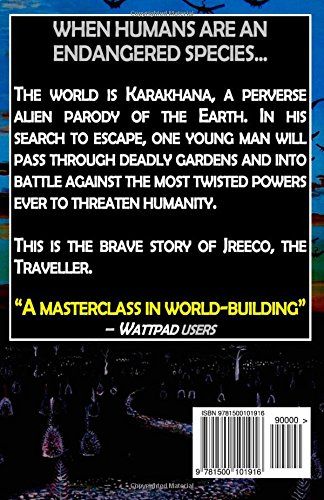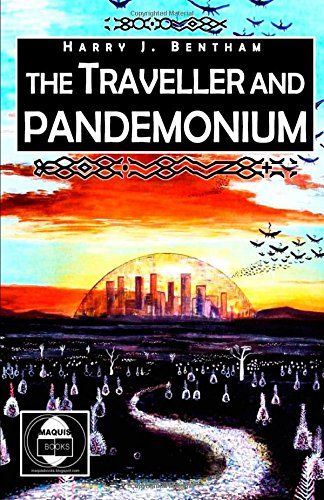. @IEET. @HJBentham. @ClubOfINFO. #nature. #philosophy. #ebook.
There is often imagined to be a struggle between humans and nature. How does this struggle originate, and what is its resolution? Such a question is central to some religious traditions, and has much room to be explored in literature.
Nature is used to describe everything that lies outside of human agency. Disasters and disease often fall under this description, although there is usually some element of human blame in such problems. Some people try to live or eat according to preferences that they call “natural”. In my view, this is a fallacy. When we use the word natural with its only workable definition, to represent something distinct from human agency, it means that anything resulting from human agency is unnatural and so it cannot be natural (even if it imitates nature). When it applies to human choices, natural is only an arbitrary label used by people to refer to anything they approve of.
Why would humans battle against nature? Perhaps suffering can be described as the most imposing and constantly surfacing part of nature in our lives, because it is ultimately caused by the laws of biology rather than human wills. We humans have vulnerable bodies and we rely on vulnerable, easily destroyed brains to exist, although it is very apparent that we would prefer not to be exposed in this way. Because this is so, the struggle to overcome humanity’s physical and medical vulnerabilities can be depicted as a battle against nature – our nature.
The assertion that seeking invulnerability against suffering is an escape from cruel inevitabilities biology is certainly reflected in some philosophers, such as Friedrich Nietzsche. Despite seeing the transformation of humanity into a higher creature as a noble task, Nietzsche saw this as necessarily involving suffering. As for the desire to end suffering, he deplored this as a product of weakness and the inability to accept the forces outside human control.
Nietzsche addressed the way in which religious traditions give moral assurances against suffering. Religions offer promises of justice that run contrary to the natural order in which the strong are favored over the weak. The Christian doctrines of the fall of man and eternal Heaven are alike in their view that the world we know is flawed and polluted, and humans are instead meant to endure in paradise. Such myths have been easy for people to buy into, because it is often easier to tolerate suffering in the world and move on if one believes in a supernatural alternative – a cosmic safety net for the weak and the dead – after it.
The other manifestation of our weak human refusal to accept suffering, but which actually works, is the desire to use science and technology to thwart suffering. Once we remove the supernatural, the only remaining assurances against suffering can necessarily come from the modernity of technology. In this sense, the idea of a technological singularity, after which the very best technology permitted by the laws of physics will get within reach, represents the only “true” paradise that could ever be inherited.
But what if a paradise, an all-encompassing solution to suffering, is impossible? A universe with high suffering is inherently more likely than a universe without it, because the “anthropic principle” does not contain any guarantees against mortality and suffering. The anthropic principle says human life exists only because this is a requisite for us to notice our own existence. Therefore, the anthropic principle leads to a universe that merely tolerates conscious life for a limited time, rather than enriches it or sustains it. Contrary to religious claims, the universe in which we reside is not “designed” for us to inhabit, and we know this because it is mostly uninhabitable. The vacuum of space cannot be inhabited, and most locations in the universe have the wrong temperature or lack the elements needed for life to exist. What is conspicuous is that the universal constants allow us to exist, not in any kind of ideal state but just enough.
One can relate “extropy” (Kevin Kelly’s usage of the term) to the anthropic principle. Where the anthropic principle explains the human-friendly properties of the universe as existing simply because a human observer exists, extropy the guarantee of something even more complex and intelligent in the future. More than simply tolerating human life, then, a universe where humans exist includes the inevitability that human intelligence will evolve into or produce something far more enduring and glorious. After all, we are no pinnacle, and we are still witnessing an ongoing explosion of intelligence through such creations as the internet and the race to develop powerful AI.
Take a look at history and current cosmology, and we will see that extropy looks very valid. Humans have undeniably been improving their existence, and this is arguably due to the universe being filled with resources that are very friendly to our needs. There are seemingly infinite resources and tools in the universe for humans to exploit to improve their civilization, and the anthropic principle alone did not necessary contain any guarantee that such useful “equipment” would exist. Conceivably, there could be worlds where intelligent life exists but there can be no fire. There might also have been no sufficient quantities of ores or effective tools to build an advanced civilization. Certainly, humans have a lot more at their fingertips than the minimal equipment promised to them by the anthropic principle. Although there is not necessarily a God to thank for it, there is a lot to be thankful for.
What if there was a world where conditions were less favorable? Perhaps, if humans were too vulnerable, there would be less potential to develop civilization, and instead all thought would be dedicated to staying alive. A work of fiction I have dedicated to exploring this theme, The Traveller and Pandemonium, takes place in a more hostile universe than ours (as permitted in the “many-worlds hypothesis”), where a traveler is not convinced by the idea that humanity could have arisen in such unfavorable conditions. Determining that humanity belongs in another world, he searches vainly for the solution.
The traveler keeps his quest secret, aware that most people will condemn him as a religious nut searching for Heaven if he talks about it, but there is actually a rational basis for his view that humans belong elsewhere. The world in which he resides is genuinely toxic and inhospitable to humanity, humans are vulnerable to every creature in the world around them, and they are rapidly going extinct. It looks like a human colonization gone awry on a hostile alien world, although no-one knows how it got that way.
The two strategies against suffering in the world can be described as surgical and spiritual. Those who advocate “spiritual” solutions are only offering window-dressing to humanity while they greedily seek power. Those who advocate “surgical” solutions might not seem beautiful or perfect in what they promise, but they are the only ones promising something real, offering something tangible that could really fight away the uglier characteristics of the universe and save what can be saved.
By Harry J. Bentham - More articles by Harry J. Bentham
Originally published at the Institute for Ethics and Emerging Technologies on 17 July 2014


Sixty years ago the first thing they taught me in Chemistry was “Matter can be neither created nor destroyed…” While not true in the strictest Einsteinian sense, this pretty much describes the universe in terms of resources. The universe is full of matter, as elements and compounds. Intelligence and energy, applied to matter, results in useful materials and artifacts. Given enough energy, we can refine and recycle any element or compound we select in whatever quantity we require. “Running out” of resources is a ridiculous concept. We never have, and never will, “run out” of anything. We find better things. The Stone Age did not end because we ran out of stone.
We do not “struggle” with our environment. We live in it, and accumulated knowledge and infrastructure makes it better. Some species go extinct for various reasons, but this is not necessarily a tragedy. We are the beneficiaries of several extinctions; otherwise we’d still be scurrying in four-footed terror back to our burrows in the dark; mayhap with a stolen dinosaur egg.
Some long-term change is inevitable and not necessarily undesirable. Several factors, including us, will cause the seas to rise in the next eon. By stunting industrialization and perpetuating the exclusion of a half billion people from full mental functionality, due to acute protein deficiency in childhood, we could save ourselves the cost of jacking up Venice. Try explaining this tragic necessity in rural Bangladesh.
Thanks for your thoughts on this. I strongly agree with what you are saying. You sound like you have read Ramez Naam’s The Infinite Resource. He argues much the case you are making. I once reviewed his book at h+ Magazine, and liked most of his ideas. I also got his thoughts on my review itself, in the comments section there.